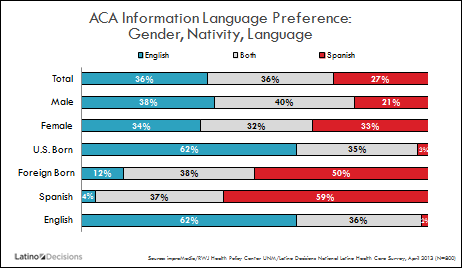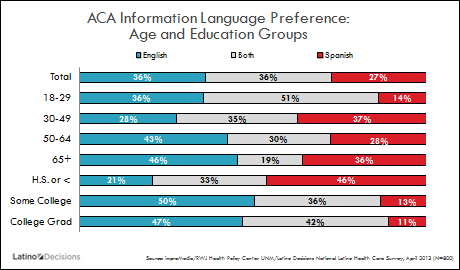The Department of Health and Human Services announced this past Sunday that they have made major progress in addressing the worst of the major glitches that have posed crashes and delays with the government health care website. Among other positive updates, officials announced that more than 50,000 people can log onto the website at once without the system crashing, and that more than 800,000 people should be able to use the system to shop for insurance coverage daily. This is great news for a frustrated public and the administration, as the government-run system is clearly working better than when it debuted. However, not all of the setbacks have been addressed.
Of high salience to the Latino community, the launch of online enrollment tools in Spanish has yet to debut and has been recently delayed. Although the administration communicated to journalists and Latino interest groups that the Spanish language enrollment tools would be ready to go by the end of November, it appears as though this was delayed due to fears that launching the Spanish language page could exasperate problems with the HealthCare.gov website. U.S. Health and Human Services spokeswoman Joanne Peters told The Associated Press last week that the administration plans a quiet launch of the Spanish enrollment tools in early December.
Although it is difficult to gauge the specific impact this setback has had on the enrollment capabilities of Latinos, the inability for Spanish-speaking Latinos to purchase health insurance through the federal government website is obviously not ideal. Our data from a national poll of Latinos focused on the ACA from April indicated that a large (27%) percentage of Latinos prefer information about the ACA be provided in Spanish. It is reasonable to assume that this segment of the Latino population will prefer to use the Spanish language website to shop and purchase health coverage. The setbacks in the Spanish language tools is more troubling when we consider that another 37% of that national sample reported that they prefer information about the ACA be available in both English and Spanish.

Looking at language preference for ACA information, the data strongly suggest that Spanish language enrollment tools will be important for just about all Latino sub-groups. For example, while the majority Latinos born in the United States prefer ACA information to be provided in English, a strong 35% of this segment of the Latino community indicate that they would like information in both English and Spanish. Similarly, although desire for English focused information increases with educational attainment, even 42% of Latino college graduates indicate that they would like ACA focused information in both English and Spanish.

When we look at the language preferences for ACA information by health insurance status in this data we see an important relationship. Among those who went without health insurance for at least part of last year, 30% prefer ACA information in Spanish, with another 39% in both languages, and 31% in English.
Given that this is the segment of the Latino population most likely to be motivated to purchase insurance through the online exchange, the setbacks could be detrimental to the effort to enroll a large number of Latinos. It appears as though the release of the Spanish language tools is dependent on the success of the English language webpage. While a logical approach, the clock is ticking and it may be too late to engage the Latino community.
Gabriel R. Sanchez is an Associate Professor of Political Science at the University of New Mexico, Interim Director of the RWJF Center for Health Policy at UNM and Research Director for Latino Decisions.


